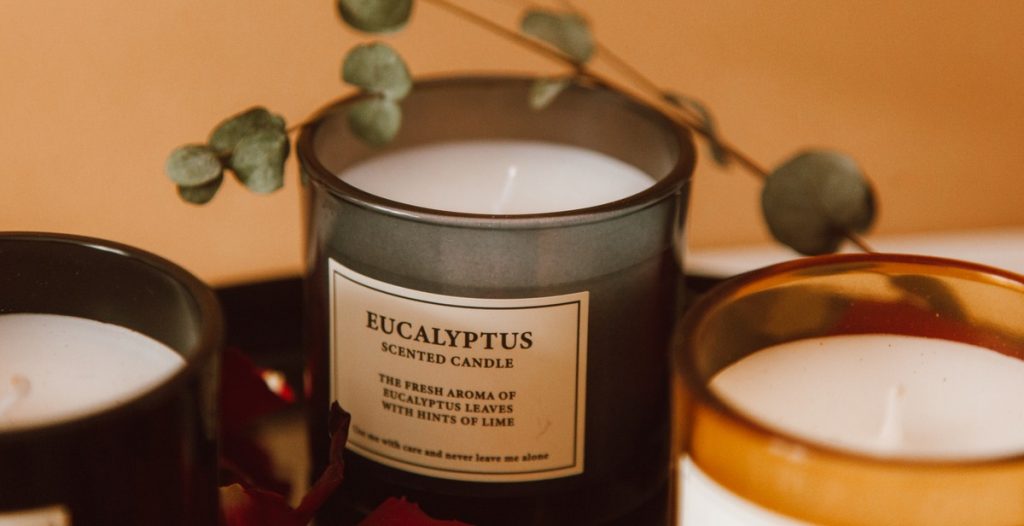What are the best types of candles for individuals with allergies or sensitivities to fragrance?
Candles are a popular way to create a cozy and relaxing atmosphere in our homes. However, for individuals with allergies or sensitivities to fragrance, burning scented candles can trigger a range of symptoms including headaches, respiratory irritation, and skin irritation.
Fortunately, there are many types of candles available that are free from synthetic fragrances and other potential irritants. In this article, we will explore the best types of candles for individuals with allergies or sensitivities to fragrance.
Types of candles for individuals with allergies or sensitivities to fragrance
- Beeswax candles: These candles are made from natural beeswax and are free from synthetic fragrances and other potential irritants. Beeswax candles have a subtle, honey-like scent and are known for their air-purifying properties.
- Soy candles: Soy candles are made from soy wax, which is a natural and renewable resource. Soy candles are free from synthetic fragrances and are known for their clean-burning properties.
- Unscented candles: As the name suggests, unscented candles are free from synthetic fragrances and other potential irritants. These candles are often made from natural waxes such as soy or beeswax.
In addition to these types of candles, there are also many natural and essential oil-based candles available that are free from synthetic fragrances. These types of candles can provide a subtle and natural scent without triggering allergies or sensitivities.
Conclusion
Choosing the right type of candle can make all the difference for individuals with allergies or sensitivities to fragrance. By opting for natural and unscented candles, you can create a cozy and relaxing atmosphere in your home without compromising your health and well-being.

Understanding Allergies and Sensitivities to Fragrance
Before we dive into the best types of candles for individuals with allergies or sensitivities to fragrance, it’s important to understand what causes these reactions in the first place.
What Causes Allergies and Sensitivities to Fragrance?
When it comes to fragrance allergies and sensitivities, the culprit is often the chemicals used to create the scents. Many fragrances contain synthetic compounds that can irritate the skin and respiratory system, triggering allergic reactions or sensitivities.
Some common fragrance chemicals that can cause reactions include:
- Phthalates
- Benzene derivatives
- Aldehydes
- Terpenes
- And many more
In addition to synthetic fragrances, natural fragrances can also cause allergies and sensitivities. Essential oils, for example, are derived from plants and can be irritating to some people. It’s important to note that just because a fragrance is natural doesn’t mean it’s safe for everyone.
Symptoms of Allergies and Sensitivities to Fragrance
So, how can you tell if you’re experiencing an allergy or sensitivity to fragrance? Here are some common symptoms to look out for:
- Sneezing
- Coughing
- Runny or stuffy nose
- Itchy or watery eyes
- Skin irritation or rash
- Difficulty breathing
- Headaches
If you experience any of these symptoms after being exposed to a fragrance, it’s possible that you have an allergy or sensitivity to that particular scent.
Now that we understand the causes and symptoms of fragrance allergies and sensitivities, let’s take a look at the best types of candles for individuals who experience these reactions.

Types of Candles for Individuals with Allergies or Sensitivities to Fragrance
Candles are a popular way to add ambiance and warmth to any room. However, for individuals with allergies or sensitivities to fragrance, burning scented candles can cause discomfort, headaches, or even trigger allergic reactions. Fortunately, there are alternative types of candles that can be enjoyed without causing any adverse effects. Here are five types of candles that are suitable for individuals with allergies or sensitivities to fragrance:
1. Beeswax Candles
Beeswax candles are made from natural beeswax, which is a renewable resource. They are hypoallergenic and do not contain any synthetic fragrances or chemicals. Beeswax candles emit a natural honey-like aroma and are known for their long burn time and bright flame.
2. Soy Candles
Soy candles are made from soy wax, which is derived from soybeans. They are a popular alternative to paraffin wax candles because they are eco-friendly and do not emit harmful chemicals when burned. Soy candles are unscented, but they can be infused with essential oils for a natural fragrance.
3. Coconut Wax Candles
Coconut wax candles are made from coconut oil, which is a renewable resource. They are eco-friendly, biodegradable, and do not contain any synthetic fragrances or chemicals. Coconut wax candles have a creamy texture and a subtle natural fragrance.
4. Pure Essential Oil Candles
Pure essential oil candles are made from natural plant extracts and do not contain any synthetic fragrances or chemicals. They are a great option for individuals who prefer natural scents and want to avoid synthetic fragrances. Essential oil candles come in a variety of scents such as lavender, peppermint, and eucalyptus.
5. Unscented Candles
Unscented candles are a great option for individuals with allergies or sensitivities to fragrance. They do not contain any synthetic fragrances or chemicals and are hypoallergenic. Unscented candles come in a variety of shapes, sizes, and colors, making them a versatile option for any occasion.
| Candle Type | Benefits | Drawbacks |
|---|---|---|
| Beeswax Candles | Hypoallergenic, natural honey-like aroma, long burn time, bright flame | Expensive, limited scent options |
| Soy Candles | Eco-friendly, unscented, can be infused with essential oils | May not have a strong scent, shorter burn time than paraffin wax candles |
| Coconut Wax Candles | Eco-friendly, biodegradable, subtle natural fragrance | Expensive, limited scent options |
| Pure Essential Oil Candles | Natural scents, no synthetic fragrances or chemicals | May have a weaker scent than synthetic fragrances, limited scent options |
| Unscented Candles | Hypoallergenic, versatile, no synthetic fragrances or chemicals | No scent, may not provide the same ambiance as scented candles |

How to Choose the Best Type of Candle for Your Needs
Choosing the best type of candle for your needs can be a bit overwhelming, especially if you have allergies or sensitivities to fragrance. Here are some tips to help you choose the right candle:
Consider Your Allergies or Sensitivities
If you have allergies or sensitivities to fragrance, it’s important to choose a candle that is fragrance-free or made with natural essential oils. Avoid candles that contain synthetic fragrances or perfumes, as these can trigger allergic reactions or irritate your respiratory system.
Check the Ingredients
When choosing a candle, make sure to check the ingredients. Look for candles made with natural waxes like soy, beeswax, or coconut wax, as these are less likely to cause allergic reactions or irritate your skin. Avoid candles made with paraffin wax, as this is a byproduct of petroleum and can release harmful chemicals when burned.
Look for Certifications
If you’re concerned about the quality and safety of your candle, look for certifications like the USDA organic seal or the Non-GMO Project Verified seal. These certifications ensure that the candle is made with natural and safe ingredients, and that it has been tested for harmful chemicals.
Read Reviews
Before buying a candle, read reviews from other customers who have allergies or sensitivities to fragrance. This will give you an idea of how well the candle performs and whether it causes any adverse reactions. Look for candles with high ratings and positive reviews from people with similar sensitivities to yours.
Conclusion
By considering your allergies or sensitivities, checking the ingredients, looking for certifications, and reading reviews, you can choose the best type of candle for your needs. Remember to always prioritize your health and safety when choosing candles, and opt for natural and fragrance-free options whenever possible.

Conclusion
If you are allergic or sensitive to fragrances, finding the right candle can be a daunting task. However, with the right information, you can choose a candle that will not cause any irritation or allergic reactions.
When choosing a candle, it’s important to look for those made from natural materials like beeswax, soy wax, or coconut wax. These candles do not contain harmful chemicals and are less likely to trigger allergies or sensitivities.
Another important factor to consider is the type of fragrance used in the candle. Essential oils are a great option for those with allergies or sensitivities, as they are derived from natural sources and do not contain synthetic chemicals. Be sure to avoid candles with synthetic fragrances or those labeled as “fragrance oils.”
Finally, it’s important to consider the burning time and the size of the candle. Larger candles with longer burning times may be more cost-effective in the long run, but they may also emit more fragrance, which can be problematic for those with allergies or sensitivities.
By following these tips, you can enjoy the ambiance and relaxation that candles provide without worrying about allergic reactions or irritation. Remember, always read labels carefully and choose candles that are made from natural materials and use essential oils for fragrance.



